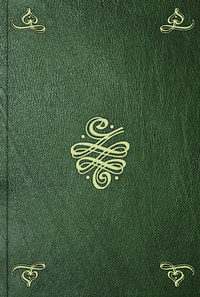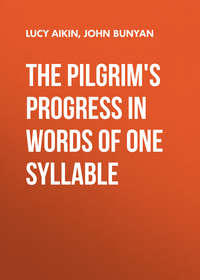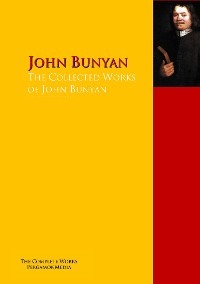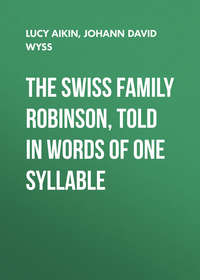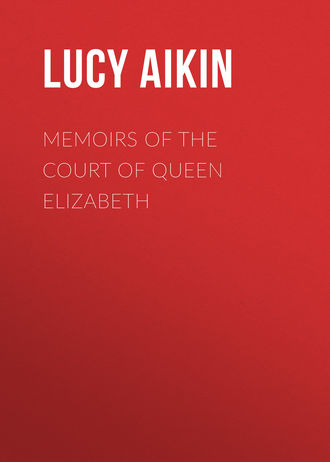 полная версия
полная версияMemoirs of the Court of Queen Elizabeth
"This bitter and public affront came to sir Charles Blount's ear, who sent him a challenge, which was accepted by my lord; and they went near Marybonepark, where my lord was hurt in the thigh and disarmed: the queen, missing the men, was very curious to learn the truth; and when at last it was whispered out, she swore by God's death, it was fit that some one or other should take him down, and teach him better manners, otherwise there would be no rule with him101."
Notwithstanding her majesty's ostentation of displeasure against her favorite on this occasion, it is pretty certain that he could not better have paid his court to her than by a duel of which, in spite of her wisdom and her age, she seems to have had the weakness to imagine her personal charms the cause. She compelled however the rivals to be reconciled: from this period all the externals of friendship were preserved between them; and there is even reason to believe, notwithstanding some insinuations to the contrary, that latterly at least the sentiment became a genuine one. If the queen had further insisted on cementing their reconciliation by an alliance, she would have preserved from its only considerable blot the brilliant reputation of sir Charles Blount. This courtier, whilst he as yet enjoyed no higher rank than that of knighthood, had conceived an ardent passion for a sister of the earl of Essex; the same who was once destined to be the bride of Philip Sidney. She returned his attachment; but her friends, judging the match inferior to her just pretensions, broke off the affair and compelled her to give her hand to lord Rich; a man of disagreeable character, who was the object of her aversion. In such a marriage the unfortunate lady found it impossible to forget the lover from whom tyrannical authority had severed her; and some years after, when Montjoy returned victorious from the Irish wars, she suffered herself to be seduced by him into a criminal connexion, which was detected after it had subsisted for several years, and occasioned her divorce from lord Rich. Her lover, now earl of Devonshire, regarded himself as bound in love and in honor to make her his wife; but to marry a divorced woman in the lifetime of her husband was at this time so unusual a proceeding and regarded as so violent a scandal, that Laud, then chaplain to the earl of Devonshire, who joined their hands, incurred severe blame, and thought it necessary to observe the anniversary ever after as a day of humiliation. King James, in whose reign the circumstance took place, long refused to avail himself further of the services of the earl; and the disgrace and vexation of the affair embittered, and some say abridged, the days of this otherwise admirable person. Whether any incidents connected with this attachment had a share in producing that hostile state of feeling in the mind of Essex towards Blount which led to their combat, remains matter of conjecture.
This year the customary festivities on the anniversary of her majesty's accession were attended by one of those romantic ceremonies which mark so well the taste of the age and of Elizabeth. This was no other than the formal resignation by that veteran of the tilt-yard, sir Henry Leigh, of the office of queen's champion, so long his glory and delight. The gallant earl of Cumberland was his destined successor, and the momentous transfer was accomplished after the following fashion.
Having first performed their respective parts in the chivalrous exercises of the band of knights-tilters, sir Henry and the earl presented themselves to her majesty at the foot of the gallery where she was seated, surrounded by her ladies and nobles, to view the games. They advanced to slow music, and a concealed performer accompanied the strain with the following song.
My golden locks time hath to silver turn'd,(Oh time too swift, and swiftness never ceasing)My youth 'gainst age, and age at' youth hath spurn'd:But spurn'd in vain, youth waneth by increasing,Beauty, strength, and youth, flowers fading been,Duty, faith, and love, are roots and evergreen.My helmet now shall make a hive for bees,And lovers songs shall turn to holy psalms;A man at arms must now sit on his knees,And feed on pray'rs that are old age's alms.And so from court to cottage I depart;My saint is sure of mine unspotted heart.And when I sadly sit in homely cell,I'll teach my swains this carrol for a song:"Blest be the hearts that think my sovereign well,Curs'd be the souls that think to do her wrong."Goddess, vouchsafe this aged man his right,To be your beadsman now, that was your knight.During this performance, there arose out of the earth a pavilion of white taffeta, supported on pillars resembling porphyry and formed to imitate the temple of the Vestal virgins. A superb altar was placed within it, on which were laid some rich gifts for her majesty. Before the gate stood a crowned pillar embraced by an eglantine, to which a votive tablet was attached, inscribed "To Elizabeth:" The gifts and the tablet being with great reverence delivered to the queen, and the aged knight in the meantime disarmed, he offered up his armour at the foot of the pillar; then kneeling, presented the earl of Cumberland to her majesty, praying her to be pleased to accept of him for her knight and to continue these annual exercises. The proposal being graciously accepted, sir Henry armed the earl and mounted him on his horse: this done, he clothed himself in a long velvet gown and covered his head, in lieu of a helmet, with "a buttoned cap of the country fashion."
The king of Scots had now for a considerable time deserved extremely well of Elizabeth. During the whole period of the Spanish armament he had remained unshaken in his attachment to her cause, resolutely turning a deaf ear to the flattering offers of Philip II. with the shrewd remark, that all the favor he had to expect from this monarch in case of his success against England, was that of Polypheme to Ulysses;—to be devoured the last. A bon mot which was carefully copied into The English Mercury. The ambassador to Scotland, from an unfounded opinion that the discomfited armada sought shelter in the ports of that country under the faith of some secret engagement with James, had thought it necessary to bribe him to fidelity by some brilliant promises, of which when the danger was past Elizabeth unhandsomely evaded the fulfilment; but even on this occasion he abstained from any vehement expressions of indignation: in short, his whole demeanour towards his lofty kinswoman was that of a submissive expectant much more than of a competitor and rival prince. True it is, that he had begun to attach to himself among her nobles and courtiers as many adherents as his means permitted; but besides that his manœuvres remained for the most part concealed from her knowledge, they certainly carried with them no danger to her government. The partisans of James were not, like those of his mother, the adherents also of a religious faction leagued with the foreign powers most inimical to her rule, and from whose machinations she was exposed to daily peril of her throne and life. They were protestants and Englishmen, and many of them possessed of such strong hereditary influence or official rank, that it could never become their interest to throw the country into confusion by ill-timed efforts in favor of the king of Scots; whose cause they in fact embraced with no other view than to secure the state from commotion, and themselves from the loss of power on the event of the queen's demise. The puritan party indeed, by whom several attempts were afterwards made in parliament to extort from the queen a settlement of the crown in James's favor, were doubtless actuated in part by discontent with the present church-establishment, and the hope of seeing it superseded under James by a presbyterian form resembling that of Scotland. For the present, however, these religionists were sufficiently repressed under the iron rod of the High-commission court, and James had entered with them into no regular correspondence, and engaged their attachment by no promises of future indulgence or support.
On the whole, therefore, the violent jealousy with which Elizabeth continued to regard this feeble and inoffensive young king, in every point so greatly her inferior, must rather be imputed to her narrowness and malignity of temper than to any dictates of sound policy or advisable precaution; and the measures with which it prompted her were impressed accordingly with every character of spite and meanness. She was peculiarly solicitous to prevent James from increasing his consequence by marriage, and through innumerable intrigues with his ministers and favorites she had hitherto succeeded in her object. When he appeared to have set his mind on a union with the eldest daughter of the king of Denmark, she contrived to interpose so many delays and obstacles that this sovereign, conceiving himself trifled with, ended the affair by giving the princess in marriage to another. To embarrass matters still more, she next proposed to James a match with the sister of the king of Navarre, a princess much older than himself, destitute of fortune, and whose brother might be influenced to protract the negotiation to any length convenient to his valuable ally the queen of England. This proposal being declined by James, and overtures made in his name to a younger daughter of the Danish house, she again set her engines at work to thwart his wishes: but indignation and an amorous impatience for once lent to James resolution sufficient to carry his point. Disregarding a declaration of his privy-council against the match, he instigated the citizens of Edinburgh to take up arms in his cause, and finally accomplished the sending out of a splendid embassy, by which the marriage-articles were speedily settled, and the princess conducted on board the fleet which was to convey her to Scotland. A violent storm having driven her for shelter into a port of Norway, the young monarch carried his gallantry so far as to set sail in quest of her; and re-conducting her, at the request of the king her father, to Copenhagen, he there passed the winter in great joy and festivity; and as soon as the season would permit, conducted his royal consort home in triumph, and crowned her with all the magnificence that Scotland could display. Seeing the turn which matters had taken, Elizabeth now made a virtue of necessity, and dispatched a solemn embassy to express to her good brother of Scotland her hearty congratulations on his nuptials, and her satisfaction in his happy return from so adventurous a voyage.
In April 1590 died sir Francis Walsingham, principal secretary of state, whose name is found in such intimate connexion with the whole domestic policy of Elizabeth during several eventful years, that his character is in a manner identified with that of the measures at this period pursued.
This eminent person, in his youth an exile for the protestant cause, retained through life so serious a sense of religion as sometimes to expose him to the suspicion of puritanism. In his private capacity he was benevolent, friendly, and accounted a man of strict integrity: but it is right that public characters should principally be estimated by that part of their conduct in which the public is concerned; and to Walsingham as a minister the unsullied reputation of virtue and honor is not to be conceded. Unlike that pure and noble patriot who "would have lost his life with pleasure to serve his country, but would not have done a base thing to save it," this statesman seems to have held that few base things ought to be scrupled by which his queen and country might be served.
That Walsingham was of unimpeached fidelity towards his sovereign requires no proof; that he was not stimulated by views of private emolument seems also to be satisfactorily evinced, though somewhat to the discredit of his mistress, by the load of debt incurred in his official capacity under the pressure of which he lived and died: but here our praise of his public virtue must end. It is impossible to regard without indignation and disgust the system of artifice and intrigue which he contrived for the purpose of insnaring the persecuted and therefore disaffected catholics; and while due credit is given to his unwearied diligence and remarkable sagacity in detecting dangerous conspiracies, it cannot be doubted that the extraordinary encouragements held out by him to spies and informers,—those pests of a commonwealth,—must in numberless instances have rendered himself the dupe, and innocent persons the victims, of designing villany. Looking even to the immediate results of his measures, it may triumphantly be demanded by the philanthropist and the sage, whether a system less artificial, less treacherous and less cruel, would not equally well have succeeded in protecting the person of the queen from the machinations of traitors, with the further and inestimable advantage of preserving her government from reproach, and the national character from degradation.
That the system of Walsingham was in the main that also of his court and of his age, is indeed true; and this consideration might in some degree plead his excuse, did it not appear that there was in his personal character a native subtilty and talent of insinuation which, aptly conspiring with the nature of his office, might truly be said to render his duty his delight:—a feature of his mind which is thus happily delineated by a witty and ingenious writer.
"None alive did better ken the secretary's craft, to get counsels out of others and keep them in himself. Marvellous his sagacity in examining suspected persons, either to make them confess the truth, or confound themselves by denying it to their detection. Cunning his hands, who could unpick the cabinets in the pope's conclave; quick his ears, who could hear at London what was whispered at Rome; and numerous the spies and eyes of this Argus dispersed in all places.
"The Jesuits, being outshot in their own bow, complained that he out equivocated their equivocation, having a mental reservation deeper and further than theirs. They tax him for making heaven bow too much to earth, oft-times borrowing a point of conscience with full intent never to pay it again; whom others excused by reasons of state and dangers of the times. Indeed his simulation (which all allow lawful) was as like to dissimulation (condemned by all good men) as two things could be which were not the same. He thought that gold might, but intelligence could not, be bought too dear;—the cause that so great a statesman left so small an estate, and so public a person was so privately buried in St. Pauls102."
The long state of infirmity which preceded the death of Walsingham, had afforded abundant opportunity for various intrigues and negotiations respecting the appointment of his successor in office. Burleigh hoped to make the choice of her majesty fall on his son Robert; Essex was anxious to decide it in favor of the discarded Davison, who seems to have been performing some part of the functions of a secretary of state during the illness of Walsingham, though he did not venture to appear in the sight of his still-offended mistress. No one was more susceptible of generous emotions than Essex; and it ought not to be doubted that much of the extraordinary zeal which he manifested, during two or three entire years, in the cause of this unfortunate and ill-treated man, is to be ascribed to genuine friendship: but neither must it be concealed that this struggle for the nomination of a secretary was in effect the great and decisive trial of strength between himself and the Cecils. Several letters have been printed, written by Essex to Davison and bearing date between the years 1587 and 1590, from which a few extracts may be worth transcribing, both for the excellence of the style and the light which they reflect on the behaviour and sentiments of Elizabeth in this matter. "I had speech with her majesty yesternight after my departure from you, and I did find that the success of my speech (although I hoped for good) yet did much overrun my expectation.... I made her majesty see what, in your health, in your fortune, in your reputation in the world, you had suffered since the time that it was her pleasure to commit you; I told her how many friends and well-wishers the world did afford you, and how, for the most part, throughout the whole realm her best subjects did wish that she would do herself the honor to repair for you and restore to you that state which she had overthrown; your humble suffering of these harms and reverend regard to her majesty, must needs move a princess so noble and so just, to do you right; and more I had said, if my gift of speech had been any way comparable to my love. Her majesty, seeing her judgement opened by the story of her own actions, showed a very feeling compassion of you, she gave you many praises, and among the rest, that she seemed to please herself in was, that you were a man of her own choice. In truth she was so well pleased with those things that she spake and heard of you, that I dare (if of things future there be any assurance) promise to myself that your peace will be made to your content and the desire of your friends, I mean in her favor and your own fortune, to a better estate than, or at least the same you had, which with all my power I will employ myself to effect." &c.
That these sanguine hopes were soon checked, appears by the following passage of a subsequent letter. "I have, as I could, taken my opportunity since I saw you to perform as much as I promised you; and though in all I have been able to effect nothing, yet even now I have had better leisure to solicit the queen than in this stormy time I did hope for. My beginning was, as being amongst others entreated to move her in your behalf; my course was, to lay open your sufferings and your patience; in them you had felt poverty, restraint and disgrace, and yet you showed nothing but faith and humility; faith, as being never wearied nor discouraged to do her service, humbleness, as content to forget all the burdens that had been laid upon you, and to serve her majesty with as frank and willing a heart as they that have received greatest grace from her. To this I received no answer but in general terms, that her honor was much touched; your presumption had been intolerable, and that she could not let it slip out of her mind. When I urged your access she denied it, but so as I had no cause to be afraid to speak again. When I offered in them both to reply, she fell into other discourse, and so we parted." &c.
On the death of Walsingham he writes thus.... "Upon this unhappy accident I have tried to the bottom what the queen will do for you, and what the credit of your solicitor is worth. I urged not the comparison between you and any other, but in my duty to her and zeal to her service I did assure her, that she had not any other in England that would for these three or four years know how to settle himself to support so great a burden. She gave me leave to speak, heard me with patience, confessed with me that none was so sufficient, and would not deny but that which she lays to your charge was done without hope, fear, malice, envy, or any respects of your own, but merely for her safety both of state and person. In the end she absolutely denied to let you have that place and willed me to rest satisfied, for she was resolved. Thus much I write to let you know, I am more honest to my friends than happy in their cases." &c.
As the fear of giving offence to the king of Scots was one reason or pretext for the implacability of the queen towards Davison, Essex hazarded the step of writing to request, as a personal favor to himself, the forgiveness and good offices of this monarch in behalf of the man who bore the blame of his mother's death. Nothing could be more dexterous than the turn of this letter; but what reception it found we do not discover. On the whole, all his efforts were unavailing: the longer Elizabeth reflected on the matter, the less she felt herself able to forgive the presumption of the rash man who had anticipated her final resolution on the fate of Mary. Other considerations probably concurred; as, the apprehension which seems to have been of perpetual recurrence to her mind, of rendering her young favorite too confident and presuming by an uniform course of success in his applications to her; the habitual ascendency of Burleigh; and, probably, some distrust of the capacity of Davison for so difficult and important a post.
In conclusion, no principal secretary was at present appointed; but Robert Cecil was admitted as an assistant to his father, who resumed on this condition the duties of the office, and held it, as it were in trust, till her majesty, six years afterwards, was pleased to sanction his resignation in favor of his son, now fully established in her confidence and good opinion. Of Davison nothing further is known; probably he did not long survive.
Some time in the year 1590, the earl of Essex married in a private manner the widow of sir Philip Sidney, and daughter of Walsingham; a step with which her majesty did not scruple to show herself highly offended. The inferiority of the connexion in the two articles of birth and fortune to the just pretensions of the earl, and the circumstance that the union had been formed without that previous consultation of her gracious pleasure,—which from her high nobility and favorite courtiers, and especially from those who, like Essex and his lady, shared the honor of her relationship, she expected as a homage and almost claimed as a right,—were the ostensible grounds of her displeasure. But that peculiar compound of ungenerous feelings which rendered her the universal foe of matrimony, exalted on this occasion by a jealousy too humiliating to be owned, but too powerful to be repressed, formed without doubt the more genuine sources of her deep chagrin. The courtiers quickly penetrated the secret of her heart;—for what vice, what weakness, can long lurk unsuspected in a royal bosom? and it is thus that John Stanhope, one of her attendants, ventures to write on the subject to lord Talbot.
"This night, God willing, she will to Richmond, and on Saturday next to Somerset-house, and if she could overcome her passion against my lord of Essex for his marriage, no doubt she would be much quieter; yet doth she use it more temperately than was thought for, and, God be thanked, doth not strike all that she threats103. The earl doth use it with good temper, concealing his marriage as much as so open a matter may be: not that he denies it to any, but for her majesty's better satisfaction, is pleased that my lady shall live very retired in her mother's house.104"
On the whole, the indignation of the queen against Essex stopped very short of the rage with which she had been transported against Leicester on a similar occasion; she never even talked of sending him to prison for his marriage. Her good sense came to her assistance somewhat indeed too late for her own dignity, but soon enough to intercept any serious mischief to the earl; and having found leisure to reflect on the folly and disgrace of openly maintaining an ineffectual resentment, she soon after readmitted the offender to the same station of seeming favor as before. There has appeared however some ground to suspect that the queen never entirely dismissed her feelings of mortification; or again reposed in Essex the same unbounded confidence with which she had once honored him. From a passage of a letter addressed by lord Buckhurst to sir Robert Sidney, then governor of the Brill, we learn, that in the autumn of the next year she still retained such displeasure against sir Robert for having been present at a banquet given by Essex, either on occasion of his marriage, or with a view to the furtherance of some design of his which excited her suspicion, that she could not be induced to grant him leave of absence for a visit to England.
But cares and occupations of a nature peculiarly uncongenial with the indulgence of sentimental sorrows, now claimed, and not in vain, the serious thoughts of this prudent and vigilant princess. The low state of her finances, exhausted by no wasteful prodigalities, but by the necessary measures of national defence and the politic aid which she had extended to the United Provinces and to the French Hugonots, now threatened to place her in a painful dilemma. She must either desert her allies, and suffer her navy to relapse into the dangerous state of weakness from which she had exerted all her efforts to raise it, or summon a new parliament for the purpose of making fresh demands upon the purses of her people; and this at the risk either of shaking their attachment, or,—a humiliation not to be endured,—seeing herself compelled to sacrifice to the importunities of the popular members some of the more oppressive branches of her prerogative; the right of purveyance for instance, or that of granting monopolies; both of which she had suffered to grow into enormous grievances. Mature reflection discovered to her, however, a third alternative; that of practising a still stricter œconomy on one hand, and on the other, of increasing the productiveness to the exchequer of the customs and other branches of revenue, by reforming abuses, by detecting frauds and embezzlements, and by cutting off the exorbitant profits of collectors.


